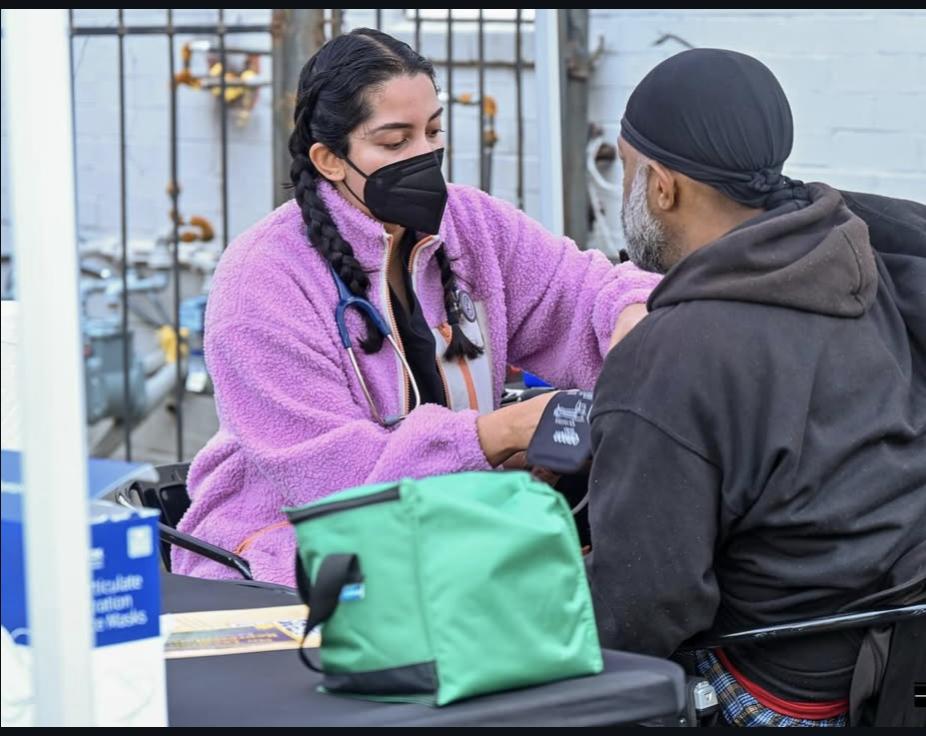One in three Georgians — more than 3.3 million people — live in areas without a primary care physician. While rural counties face the steepest shortages, even urban counties like DeKalb lack enough providers.
To address this shortage, Emory University School of Medicine offers the Kathelen and Dan Amos Medical Student Loan Forgiveness Program. The program, which was founded in 2021, supports current students, recent graduates and residents who plan to practice primary care — family medicine, internal medicine, pediatrics or geriatrics — in Georgia.
Award recipients commit to at least two years of in-state primary care. They may reapply annually for up to four years and receive as much as $160,000 in total support. Each additional award adds one year of service to the obligation. Recipients who practice in rural areas qualify for extra money.
The program currently has 27 scholars who have committed to two years, 14 scholars to three years, seven scholars to four years and two scholars to five years. Cumulatively, this translates to 134 years of pledged practice in Georgia from 50 Amos Scholars.
The average medical school debt exceeds $200,000, not including undergraduate loans. For many students, this scholarship means they can follow their hearts into primary care rather than choose higher-paying specialties to manage their debt.
Serving her community
Take Janhavi Dubhashi, who will graduate from the Emory School of Medicine in May 2025. She will be heading to Baltimore, Maryland, to complete a dual residency in both internal medicine and pediatrics at Johns Hopkins. Dubhashi is the first Amos Scholar to go into a dual medicine-pediatrics residency program. After residency, she plans to return to her home state of Georgia.
“I envision myself practicing both pediatrics and adult medicine in communities that have not historically had access to primary care,” Dubhashi says.
Dubhashi became interested in primary care while growing up in Georgia. After getting her undergraduate degree in biology, she realized she wanted to focus on preventive health instead of a form of medicine that solely reacts to disease. She obtained her MPH with a concentration in health management and policy at Georgia State University.
During this time, Dubhashi worked at the Georgia State Capitol as an advocate and lobbyist for children’s health and well-being. She went on to complete a David A. Winston Fellowship and held a position within the U.S. Senate in Washington, D.C. However, in 2020, she realized that what her community really needed was primary care practitioners with a deeply rooted understanding of the social and political realities that impact health.
For Dubhashi, the decision wasn’t easy. “I met a lot of primary care providers early on who shared the tough reality of working in a field that isn’t always valued. However, these were the same doctors I saw advocating for their patients every step of the way, within their clinics and beyond,” she says.
The Amos Scholarship paved the way for her to prioritize her desired career over one with higher pay. “The scholarship gives me a lot of relief in making career choices,” she says. “Now I can feel comfortable choosing primary care without feeling as much financial pressure.”
Upon her return to Georgia, she hopes to start a FIT Clinic — Formerly Incarcerated Transitions — a model used in other states but not yet available in Georgia. These clinics provide consistent access to primary care to people recently released from prisons and jails, a much-needed gap to address within the field of primary care.
Dubhashi has worked with a mobile clinic to provide primary care for individuals experiencing homelessness. 
“When I think of community, I think of people I’m accountable to,” Dubhashi says. “That includes kids I am working with in the juvenile jail, people on the street who were recently discharged from our hospitals and my neighbors who don’t have access to medical care.”
Dubhashisays the Amos scholarship gave her the freedom to pursue primary care. “A big part of my decision to pursue my dream of primary care came down to thisscholarship,” she says.“I am very grateful.”

